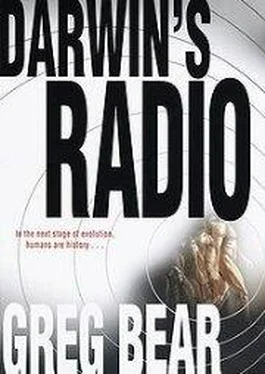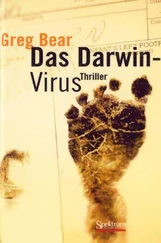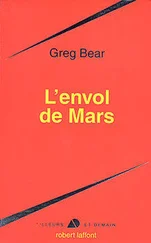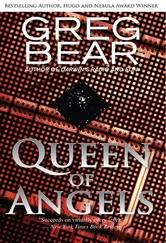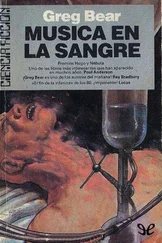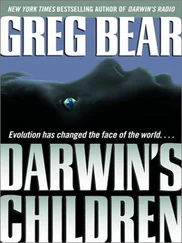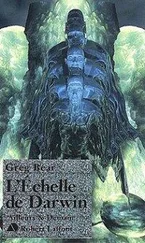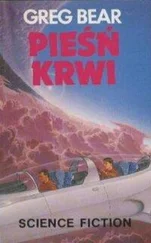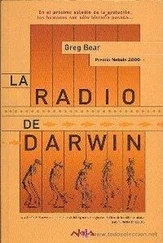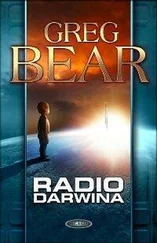The interviewer interrupted the clip. “What are the scientists doing that they weren’t doing last year? What’s new in the effort?”
Cosby made a sour face. “I’m just a man who wants to help us get through this mess. Doctors and scientists are the only hope we’ve got, and we can’t just take to the streets and burn things down and make it all go away. We’re talking about thinking things through, working together, not engaging in riots and panic.”
Delia stood in the bathroom doorway, plump legs bare beneath the small motel towel, head wrapped in another towel. She stared fixedly at the television. “It’s not going to make any difference,” she said. “My babies are dead.”
* * *
Mitch returned from the Coke machine at the end of the line of rooms to find Morgan pacing in a U around the bed. The boy’s hands were knots of frustration. “I can’t stop thinking,” Morgan said. Mitch held out a Coke and Morgan stared at it, took it from his hand, popped the top, and chugged it back fiercely. “You know what they did, what Jayce did? When we needed money?”
“I don’t need to know, Morgan,” Mitch said.
“It’s how they treat me. Jayce went out and got a man to pay for it, and, you know, she and Delia blew him, and took some money. Jesus, I ate some of that dinner, too. And the next night. Then we were hitching and Delia started having her baby. They won’t let me touch them, even hug them, they won’t put their arms around me, but for money, they blow these guys, and they don’t care whether I see them or not!” He pounded his temple with the ball of his thumb. “They are so stupid, like farm animals.”
“It must have been tough out there,” Mitch said. “You were all hungry.”
“I went with them because my father’s nothing great, you know, but he doesn’t beat me. He works all day. They needed me more than he does. But I want to go back. I can’t do anything more for them.”
“I understand,” Mitch said. “But don’t be hasty. We’ll work this through.”
“I am so sick of this shit!” Morgan howled.
They heard the howl in the next room. Jayce sat up in bed and rubbed her eyes. “There he goes again,” she murmured.
Delia dried off her hair. “He really isn’t stable sometimes,” she said.
“Can you drop us off in Cincinnati?” Jayce asked. “I have an uncle there. Maybe you can send Morgan back home now.”
“Sometimes Morgan’s such a child,” Delia said.
Kaye watched them from her chair, her face pinking with an emotion she could not quite understand: solidarity compounded with visceral disgust.
Minutes later, she met Mitch outside, under the long motel walkway. They held hands.
Mitch pointed his thumb over his shoulder, through the room’s open door. The shower was running again. “His second. He says he feels dirty all the time. The girls have played a little loose with poor Morgan.”
“What was he expecting?”
“No idea.”
“To go to bed with them?”
“I don’t know,” Mitch said quietly. “Maybe he just wants to be treated with respect.”
“I don’t think they know how,” Kaye said. She pressed her hand on his chest, rubbed him there, her eyes focused on something distant and invisible. “The girls want to be dropped off in Cincinnati.”
“Morgan wants to go to the bus station,” Mitch said. “He’s had enough.”
“Mother Nature isn’t being very kind or gentle, is she?”
“Mother Nature has always been something of a bitch,” he said.
“So much for Rocinante and touring America,” Kaye said sadly.
“You want to make some phone calls, get involved again, don’t you?”
Kaye lifted her hands. “I don’t know\” she moaned. “Just taking off and living our lives seems wildly irresponsible. I want to learn more. But how much will anybody tell us — Christopher, anybody on the Taskforce? I’m an outsider now.”
“There’s a way we can stay in the game, with different rules,” Mitch said.
“The rich guy in New York?”
“Daney. And Oliver Merton.”
“We’re not going to Seattle?”
“We are,” Mitch said. “But I’m going to call Merton and say I’m interested.”
“I still want to have our baby,” Kaye said, eyes wide, voice fragile as a dried flower.
The shower stopped. They heard Morgan toweling off, alternately humming to himself and swearing.
“It’s funny,” Mitch said, almost too softly to hear. “I’ve been very uncomfortable about the whole idea. But now…it seems plain as anything, the dreams, meeting you. I want our baby, too. We just can’t be innocent.” He took a deep breath, raised his eyes to meet Kaye’s, added, “Let’s go into that forest with some better maps.”
Morgan stepped out onto the walkway and stared at them owlishly. “I’m ready. I want to go home.”
Kaye looked at Morgan and almost flinched at his intensity. The boy’s eyes seemed a thousand years old.
“I’ll drive you to the bus station,” Mitch said.
70
The National Institutes of Health, Bethesda
MAY 5
Dicken met the director of the National Institute of Child Health and Human Development, Dr. Tania Bao, outside the Natcher Building, and walked with her from there. Small, precisely dressed, with a composed and ageless face, its features arranged on a slightly undulating plain, nose tiny, lips on the edge of a smile, and slightly stooped shoulders, Bao might have been in her late thirties but was in fact sixty-three. She wore a pale blue pantsuit and tasseled loafers. She walked with small quick steps, intent on the rough ground. The never-ending construction on the NIH campus had been brought to a halt for security purposes, but had already torn up most of the walkways between the Natcher Building and the Magnuson Clinical Center.
“NIH used to be an open campus,” Bao said. “Now we live with the National Guard watching our every move. I can’t even buy my granddaughter toys from the vendors. I used to love to see them on the sidewalks or in the hallways. Now they’ve been cleared out, along with the construction workers.”
Dicken raised his shoulders, showing that these things were outside his control. His area of influence did not even include himself anymore. “I’ve come to listen,” he said. “I can take your opinions to Dr. Augustine, but I can’t guarantee he’ll agree.”
“What happened, Christopher?” Bao asked plaintively. “Why do they not respond to what is so obvious? Why is Augustine so stubborn?”
“You’re a far more experienced administrator than I am,” Dicken said. “I know only what I see and what I hear in the news. What I see is unbearable pressure from all sides. The vaccine teams haven’t been able to do anything. Mark will do everything he can, regardless, to protect public health. He wants to focus our resources on fighting what he believes is a virulent disease. Right now, the only available option is abortion.”
“What he believes …” Bao said incredulously. “What do you believe, Dr. Dicken?”
The weather was coming into a warm and humid summer mood that Dicken found familiar, even comforting; it made a deep and sad part of him think he might be in Africa, and he would have much preferred that to the current round of his existence. They crossed a temporary asphalt ramp to the next level of finished sidewalk, stepped over yellow construction tape, and walked into the main entrance of Building 10.
Two months ago, life had begun to come apart for Christopher Dicken. The realization that hidden parts of his personality could affect his scientific judgment — that a combination of frustrated infatuation and job pressure could jolt him into an attitude he knew to be false — had preyed on him like a swarm of little biting flies. Somehow, he had managed an outward appearance of calm, of going with the game, the team, the Taskforce. He knew that could not go on forever.
Читать дальше
Конец ознакомительного отрывка
Купить книгу
